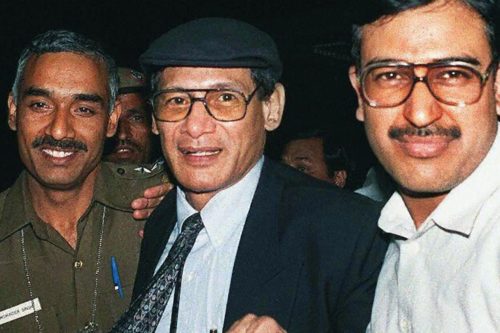
After his parents separated, his mother married a French soldier and moved the family to France. Hatchand Bhaonani Gurumukh Charles Sobhraj was born in Saigon in 1940 to an Indian businessman and a Vietnamese shop assistant.
CHARLES SOBHRAJ PARENTS SERIES
Sobhraj’s nickname, “The Serpent”, came from his ability to assume other identities and was also used as the title of a popular streaming series produced by Netflix and BBC. Sobhraj even sold his story from prison to a publishing house and recounted the murders in chilling detail while talking to reporters. “He despised backpackers, he saw them as poor young drug addicts,” Australian journalist Julie Clarke, who interviewed Sobhraj in prison in Delhi, told AFP in 2021. Investigators in these countries said most of these murders had common traits – the victims were young backpackers, they were usually stabbed and their bodies burnt so that they could not be identified, and Sobhraj usually used their passports to travel along with his female companions to his next destination, reads the report. He ultimately spent 21 years in jail though he was never convicted of all the 24 murders he had committed in Thailand, Nepal and India. The jailbreak triggered a nationwide manhunt and Sobhraj was arrested at O Coqueiro, then a popular hangout for hippies in Goa, 22 days later by inspector Madhukar Zende.īefore being held in Goa, Sobhraj was reportedly riding around on a pink motorcycle in outlandish disguises.Īt the time of the escape, Sobhraj was serving a 12-year sentence for poisoning a group of French tourists in 1976 and robbing them. In India, Sobhraj gained notoriety when he escaped from Delhi’s Tihar Jail in 1986 after feeding the guards cakes, cookies and grapes laced with sleeping pills. In between the two convictions, Sobhraj married Nihita Biswas, the daughter of his Nepalese lawyer who was 44 years his junior, during a secret ceremony in jail in 2008. He was convicted of killing Canadian backpacker Laurent Carrier in 2014 and given a second life sentence, reads the report. He was arrested in Kathmandu after being spotted in a casino, and a court in Nepal subsequently sentenced him to life imprisonment for murdering an American tourist, Connie Joe Bronzich, in 1975. It is still unclear why Sobhraj traveled in 2003 to Nepal, where he was wanted for several murders.

Fluent in several languages, he was a skilled con artist who often targeted young backpackers who were exploring what was known as the “Hippie Trail,” which ran through Afghanistan and Nepal into Southeast Asia.The verdict marked another twist in the life of the charismatic conman, a French citizen of Vietnamese and Indian parentage who evaded the law in several Asian countries in the 1970s while befriending and robbing young backpackers before graduating to murdering them and using their passports for his own travels. Wherever he went, he prayed on the unsuspecting. It is believed that he killed between 12 to 24 people from 1972 to 1976.For years, Sobhraj traveled around Europe and Asia, escaping custody in at least four countries. During the 1970s, he befriended mostly western tourists in Asia, drugging and killing them. The son of an Indian father and a Vietnamese mother, Sobhraj spent part of his childhood on the rough streets of Saigon and was shuttled back and forth between his parents. He then earned the nickname “the Serpent” for his numerous escapes from jail. Charles Sobhraj was first called the “Bikini Killer” after the swimsuit one of his victims was wearing when she was discovered.


Born on April 6, 1944, in Saigon, Vietnam.

CHARLES SOBHRAJ PARENTS SERIAL
Biographical account of the life (to 1980) and crimes of Charles Sobhraj, serial killer and thief.


 0 kommentar(er)
0 kommentar(er)
